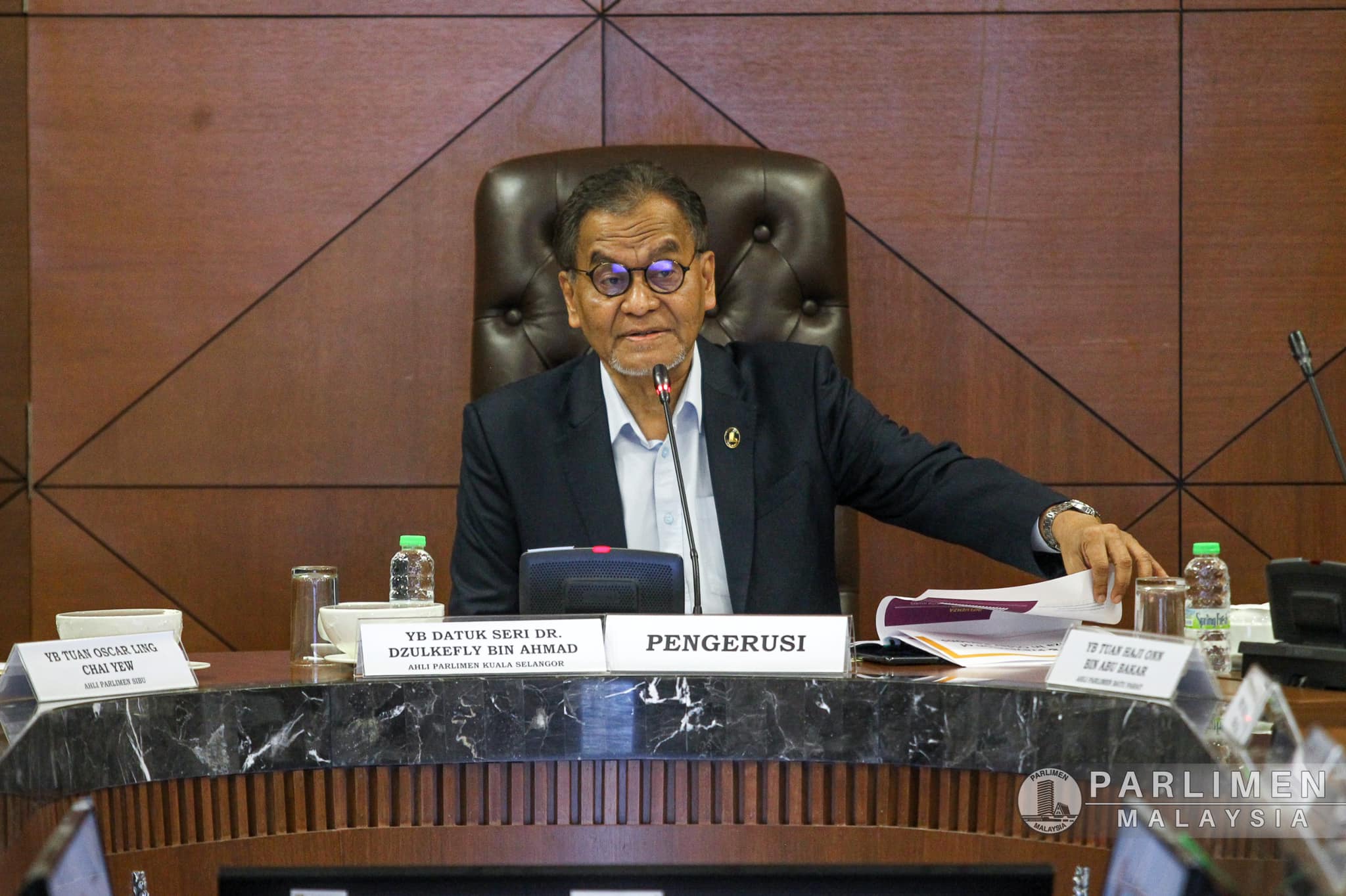KUALA LUMPUR, Dec 12 – Former Health Minister Dzulkefly Ahmad was reappointed health minister today in a reshuffle of Prime Minister Anwar Ibrahim’s Cabinet, replacing Dr Zaliha Mustafa.
Dzulkefly – a three-term Kuala Selangor MP and Amanah strategy director – previously served as health minister for nearly two years in the short-lived Pakatan Harapan (PH) administration under Prime Minister Dr Mahathir Mohamad.
Dr Zaliha – Malaysia’s first woman health minister and a junior MP from PKR representing Sekijang in Johor – was transferred to the Prime Minister’s Department as a Minister in the Prime Minister’s Department (Federal Territories) in today’s Cabinet reshuffle.
“Experience is needed,” Anwar told reporters about the health portfolio change after announcing his new Cabinet.
“I believe that stronger focus needs to be placed on the ministry. The Health Ministry is burdened with lots of problems — some of it inherited, and some of it to fulfil public demand for better quality health care services. We hope that he (Dzulkefly) will be able to perform his duties well.”
Lukanisman Awang Sauni remained as deputy health minister.
Dzulkefly, a toxicologist who is not a medical doctor, will likely have to relinquish his chairmanship of the Health parliamentary special select committee (PSSC) with his new appointment to helm the Ministry of Health (MOH).
During her one-year and 10-day tenure as health minister, Dr Zaliha’s most significant policy decision was to remove liquid and gel nicotine from the list of scheduled poisons under the Poisons Act 1952 last March 31, vetoing advice from the independent Poisons Board that had unanimously voted against the proposal.
Dr Zaliha’s order exempting liquid nicotine from the Poisons List – which enabled the taxation of vape and e-cigarette liquids with nicotine from last April 1 – triggered an historic lawsuit by anti-tobacco groups, who accused the health minister, who is also a medical doctor, of harming public health by legalising the sale of nicotine vapes to anyone, including minors aged below 18, due to the absence of vape regulations.
The Control of Smoking Products for Public Health Bill 2023 is currently pending at the Dewan Negara, after passage in the Dewan Rakyat last November 30. Should the bill pass the Senate, the Malaysian Pharmacists Society (MPS) estimates at least six months to a year for regulations to be drafted under the Act.
This means that nicotine e-cigarettes and vapes will still remain legally accessible to children and teenagers below 18 until then. As the new health minister, Dzulkefly will have to decide whether to immediately restore liquid and gel nicotine into the Poisons List – which would require the Ministry of Finance to suspend tax collection on nicotine e-liquids – or to allow the legal sale of nicotine vapes to minors for possibly another year, pending regulations.
When Dr Zaliha was health minister, the government decided to drop the generational end game (GEG) ban on tobacco and vape products for anyone born from 2007 from the Control of Smoking Products for Public Health Bill, ostensibly on Attorney-General Ahmad Terrirudin Mohd Salleh’s advice that the generational smoking prohibition is unconstitutional.
Even though the Health PSSC, under Dzulkefly, had recommended retaining the GEG in the tobacco and vape control bill, it is unlikely that the generational smoking ban can be restored in future, as something that is considered to be “unconstitutional” now cannot suddenly be constitutional again over time, unless deemed so by the courts.
Another issue that Dzulkefly will have to deal with urgently is the MOH’s new requirement for contract doctors and pharmacists (and likely, dentists too) from the October 2 cohort to tender their resignations with effect in less than a week on December 18, the same day when they report for duty as permanent appointments in their new location.
The medical fraternity has questioned the forced resignations on more than 1,000 contract doctors and over 400 contract pharmacists, saying that this would prevent the health care professionals from claiming for interstate transfer allowances, besides affecting their salary scales and promotions as years of service under contract are not taken into account.
Dzulkefly will also have to manage low morale in the public health service that has led to rising resignations among doctors. A whopping 10 per cent of more than 4,200 medical officers who were offered permanent appointments last July 31 had rejected their offers.
In July, CodeBlue ran a series of stories detailing the impact of the massive relocation exercise on major public hospitals in Melaka and the Klang Valley — notably at Kuala Lumpur Hospital’s emergency department and Selayang Hospital’s obstetrics and gynaecology (O&G) department — where staff shortages could lead to potential resignations, longer wait times, suboptimal care, and possibly endangering patients’ lives.









